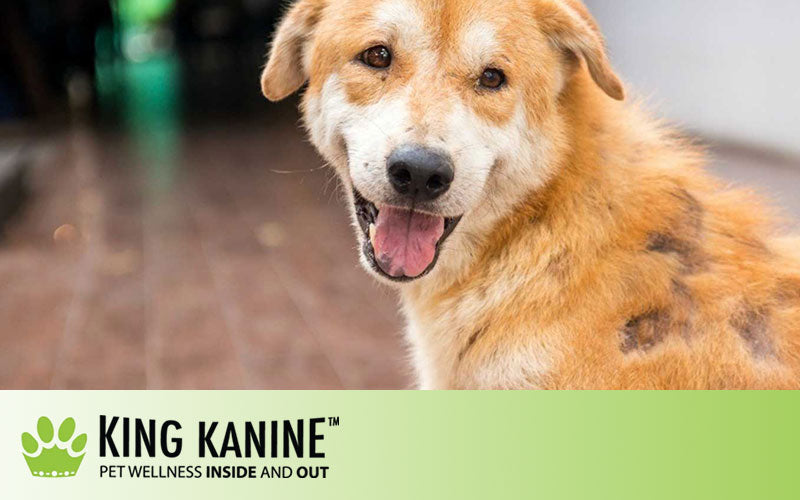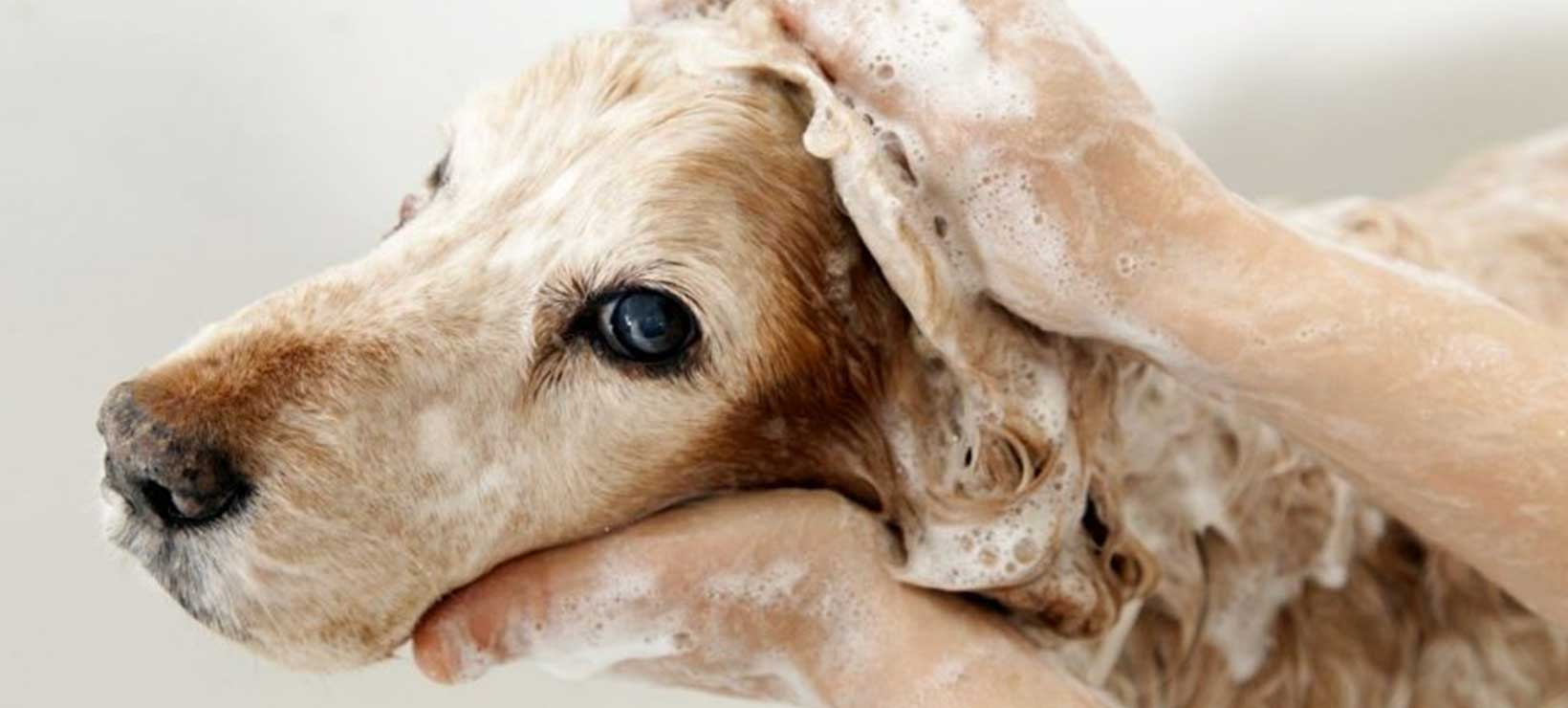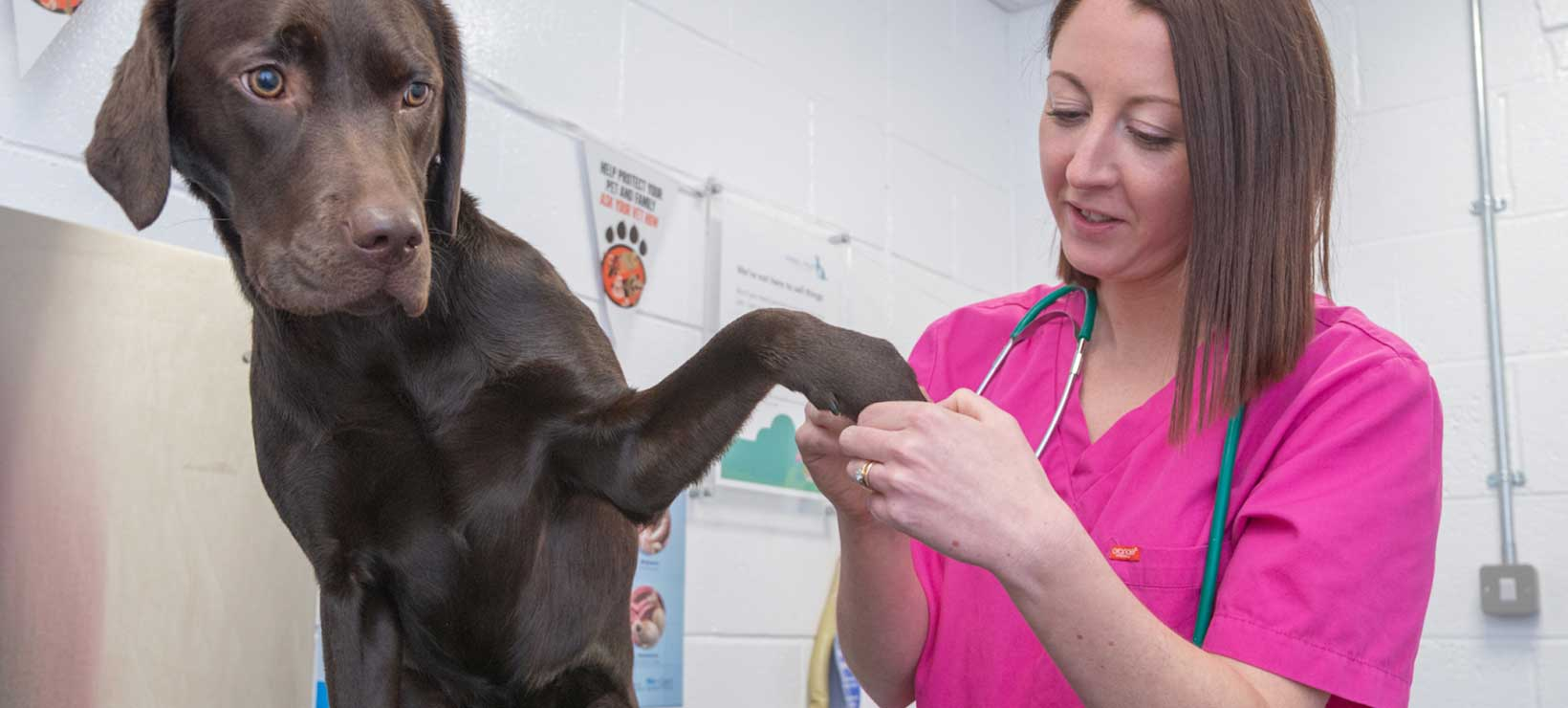
April 01, 2022 7 min read
When going to the vet isn't an option, you can treat a dog's irritated skin at home. Colloidal oatmeal baths, baking soda, and coconut oil are just a few examples of natural remedies.
It is important to note that while you can provide some relief and reduce the urge to itch, it's critical to fix the underlying condition, whether it's an irritant, insect bites, or an autoimmune disease. This is where visiting a veterinarian becomes relevant.

Mild itchiness isn't generally a sign of anything serious. But if your dog begins to exhibit seasonal allergies, such as regular or continuous itching or sniffing, difficulties finding satisfaction or anxiousness from itching, or decreased appetite, consult your veterinarian immediately.
To avoid any potential open sores and diseases in the skin, it's critical to address the underlying cause of its extreme or chronic itchiness.
However, if your dog's scratching is only occasional or slight, there are plenty of completely safe, natural ways to treat it at home. You might already have the majority of the solutions in your pantry. Continue reading for simple natural remedies that can provide real comfort to your itchy dog.

Please note it is highly recommended that you consult your veterinarian before beginning any skincare routine for open wounds for your dog and terminate treatment if your dog's signs persist or deteriorate.
Vitamin E is a powerful antioxidant that aids in the fight against aging. Antioxidants prevent the body from damage caused by free radicals, which scientists believe causes aging. Even if your dog isn't concerned about looking young, they can still improve from Vitamin E oil. It provides UV radiation protection, particularly useful if your dog spends hours outside.
Vitamin E can also be used to hydrate the dry skin of your fur buddy. You can also massage Vitamin E oil into your dog's coat to benefit their skin.
Alternatively, Vitamin E capsules can be opened and then used to treat warts, cracked skin, and dry skin/patches. If your dog licks off a small amount of the oil, there is no need to be worried.
Sure, apple cider vinegar is a flavorful addition to freshly made garnishes, but did you know it can also be used as a potent antifungal and antibacterial treatment? Simply combine 50% apple cider vinegar and 50% water in a clean spray bottle.
Spray the solution on your dog's irritation spots. If your dog's paws are itchy, you can immerse them in the mixture for up to five minutes.

A colloidal oatmeal bath can deeply cool the irritated skin of your dog by decreasing inflammation and wiping away irritants that get stuck in the fur. Colloidal oatmeal's anti-inflammatory properties can relieve redness, swelling, and itchiness, as well as cool your dog's hot, uncomfortable skin.
You could buy it pre-made (it's made by blending the oats into a fine powder and simmering it to draw out the colloidal) or blend plain, sugar-free oatmeal into a powder yourself.

Plain yogurt is a tasty and healthy treat for your dog. The viable bacterial organisms in yogurt may also aid in the rebalancing bacteria in your dog's intestines, but "the canine digestive system" is not the same as humans. There are better alternatives that are made solely for dogs.
Probiotics for dogs are widely available, both at vets and pet shops. Vets suggest purchasing products made by trusted brands and bearing the National Animal Supplement Council (NASC) seal on the label. This makes sure that you are buying an effective and safe product.
There has been some debate about coconut oil and cardiovascular health. But if cold and solidified coconut oil is massaged into the fur and skin of your dog, it can relieve the pain linked with doggy eczema, skin infections, and even insect bites.
When buying coconut oil, look for the highest quality coconut oil made for humans. Look for terms like "organic" or "unrefined" on the label. If you want the coconut oil to do twofold duty, mix a small dollop into your dog's dry food. But always consult the vet before switching up your dog's diet.
Chamomile herb and green teas are quite well-known for their relaxing, anti-inflammatory properties in humans. But they also work well with dogs. If your dog has warm, itchy spots on the skin, try soaking it in a green tea or chamomile bath to soothe it.
Here's how to go about it: Fill a bath or sink halfway with lukewarm water. Then dip several tea bags in the water for 3 to 5 minutes. After that, take out the tea bags and soak your dog in the mixture for at least 5 minutes. Spot treat your dog's skin by steeping a tea bag and allowing it to cool entirely before applying the tea straight to affected regions.
It's not the same as the licorice candy you have. Licorice root is a type of cortisone. Cortisones are known to soothe skin irritation and decrease the urge to scratch. You can find licorice root bottles in health-food stores.
Licorice products for dogs are also accessible at pet supply stores. Licorice root may be included in some dog-specific goods developed to treat allergies.
If you've given your dog a good bath and dip, and it still has fleas, try the herbal home remedy mentioned below.
Take five drops of dandelion root, five drops of licorice root, and five drops of cat's claw. Combine all three ingredients and feed your dog five drops of the ultimate solution once every day, for 14 days in a row.
Because cortisone is a steroid, it is critical to consult with your veterinarian before applying these products to your dog. This will avoid any potential cross responses and/or adverse effects with any other medications your pet could be taking.
Furthermore, some licorice root preparations have been linked to muscle breakdown, low potassium levels, and kidney damage. Before using any natural remedy, make sure you're working with a vet who is well-versed in natural medicine.
If you've had a sunburn, you know how useful all-natural aloe vera can be. Aloe vera is a potent healer and can reduce inflammation and attract unwanted heat away from the skin. You can directly apply aloe vera to your dog's irritated skin portions.
Most grocery stores and pharmacies sell 100% natural aloe vera, or you can extract it from your aloe vera plant if you are growing one in your garden.
Baking soda, a pantry staple, can do a lot more than just make your baked goods rise. Baking soda, when mixed with water and blended into a fine paste, can dry out skin problems, relieve itching, and decrease irritation and swelling of sensitive skin. All you have to do is soak your dog in a mix of half baking soda and half water.
You can also add the thick paste to raw skin for itch relief. Thoroughly rinse after about 20 minutes. Add a small amount of high-quality coconut oil to the mix for a more hydrating blend. You can also add it to your dog's bath if it has an itch all over the body.
Aside from the itchiness, reddening, swollen gums, nasal congestion, and other symptoms that a skunk encounter can cause in your dog, there is also the unpleasant odor. A de-skunking solution suggested can be a mixture of baking soda, hydrogen peroxide, and liquid soap, which works on skunked fur and everything it comes in contact with.
Combine four cups of hydrogen peroxide with one-third cup sodium bicarbonate and a small splash of dish detergent and apply it generously to your dog's skin as one of the most effective dog itching remedies. After 5 minutes, rinse thoroughly and repeat if needed.
To relieve muscle soreness and your dog's itchy skin, give it magnesium-rich Epsom salts in a warm water bath. They are anti-inflammatory and can also be used to wash and clean wounds.
They cause nodules to open and drain, releasing pressure from the wound and enabling it to heal. These liquids are frequently used to soak the feet of dogs and horses with inter-digital wounds. To make a bath for your dog, mix Epsom salts with hot water and put the soak on your dog three times a day for 5 to 10 minutes.

A balanced diet rich in omega-3 fats and better and healthier carbs can help calm and heal your dog's skin from within. How? Many dogs are hypersensitive to the substances found in traditional chicken or turkey-based dog food products and wheat or gluten.
Doggy food allergies can be relieved by substituting these meats with fish-based food products or foods that contain sweet potatoes. Furthermore, fish high in omega-3 fatty acids were shown to reduce swelling, aid digestion, and promote healthy skin.
Remember to always discuss with your veterinarian before modifying your dog's eating plan or adding fresh nutrition.

If your dog is experiencing non-seasonal itchiness and diarrhea, it is most probably caused by food allergies. So, apart from treating the itchy skin, it is also important to make sure your dog remains hydrated. Flavorless electrolyte liquids like sports waters or pediatric drinks help athletes rehydrate and relieve babies from stomach-oriented diseases. They can also provide your sick dog's body with much-required fluid and electrolytes if he's experiencing indigestion or diarrhea.
Dogs lose electrolytes and water when they have diarrhea. So offering them electrolytes can be suitable, especially if their appetite hasn't fully recovered. Before giving these different kinds of liquids to your dog, consult your vet to ascertain the suitable dosage and whether additional treatment is required.
Dishwashing liquid, fish oil, hydrogen peroxide, and chamomile tea are some household products that can also be used as natural treatments for your dog. Keep in mind to first consult with your veterinarian about any unusual symptoms your dog is experiencing and whether those products are suitable for the dog's situation. It's possible that relieving your dog's chronic itching is already within your grasp.
Dogs are itchy for a variety of allergy symptoms. These include lice, diet concerns, allergies, and potential skin infections.
Depending on the prognosis, your dog can receive a variety of treatments. This is why it is critical to see your veterinarian. Aside from worm and allergy skincare products, there are meds and steroids too to address the underlying issue.
You should consult your veterinarian, as there are plenty of causes for itchy throat and hair loss, ranging from mild to severe. The veterinarian will perform diagnostic testing to determine the cause and cure it accordingly.